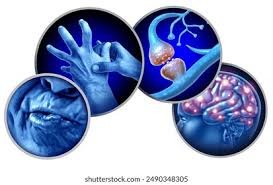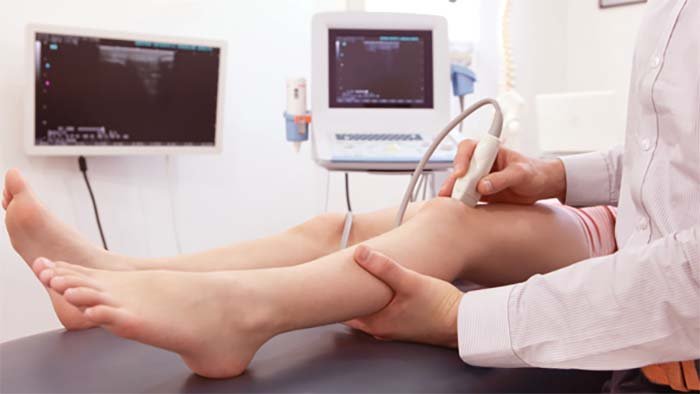NEURO REHABILITATION

Neurological Rehabilitation: (neurorehabilitation) is a therapeutic approach aimed at helping individuals recover from or manage disabilities resulting from neurological diseases, injuries, or disorders affecting the nervous system, including the brain, spinal cord, and peripheral nerves. It focuses on restoring functional abilities and improving quality of life.
Common Neurological Diseases Treated in Rehabilitation:
Stroke (Cerebrovascular Accident)
- Description: A condition where blood flow to the brain is interrupted, leading to brain cell death and possible paralysis, speech difficulties, and cognitive impairments.
- Rehabilitation Focus: Motor skill recovery, speech therapy, cognitive exercises, and emotional support.
Traumatic Brain Injury (TBI)
- Description: Damage to the brain caused by an external force (e.g., accident, fall), which can lead to cognitive, motor, and emotional impairments.
- Rehabilitation Focus: Cognitive-behavioral therapy, speech therapy, and physical therapy to regain motor skills and improve memory, attention, and emotional regulation.
Spinal Cord Injury
- Description: Damage to the spinal cord that can result in partial or complete loss of function and sensation below the injury site.
- Rehabilitation Focus: Mobility training, strengthening muscles, wheelchair management, and training in daily activities.
Multiple Sclerosis (MS)
- Description: A chronic autoimmune disease that affects the central nervous system, leading to progressive loss of motor and cognitive function.
- Rehabilitation Focus: Fatigue management, balance and coordination exercises, mobility aids, and managing symptoms like spasticity.
Parkinson’s Disease
- Description: A degenerative disorder of the central nervous system that primarily affects movement, often causing tremors, stiffness, and balance issues.
- Rehabilitation Focus: Gait training, improving balance and coordination, and exercises to reduce muscle stiffness.
Cerebral Palsy
- Description: A group of disorders affecting movement, muscle tone, and posture, caused by damage to the developing brain.
- Rehabilitation Focus: Physical therapy for muscle strengthening and movement, speech therapy, and occupational therapy to enhance daily functioning.
Amyotrophic Lateral Sclerosis (ALS)
- Description: A progressive neurodegenerative disease that affects nerve cells controlling voluntary muscles, leading to muscle weakness and paralysis.
- Rehabilitation Focus: Adaptive equipment, respiratory support, and strategies to maintain as much independence as possible.
Guillain-Barre Syndrome (GBS)
- Description: A rare neurological disorder where the immune system attacks peripheral nerves, causing weakness, paralysis, and sensory loss.
- Rehabilitation Focus: Strength training, mobility assistance, and nerve stimulation to recover lost function.
Huntington’s Disease
- Description: A genetic disorder that causes the progressive breakdown of nerve cells in the brain, affecting movement, cognition, and emotions.
- Rehabilitation Focus: Exercises for motor control, cognitive therapy, and psychiatric support.
Neuromuscular Disorders (e.g., Muscular Dystrophy, Myasthenia Gravis)
- Description: Conditions that affect the muscles and the nerves that control them, leading to progressive muscle weakness.
- Rehabilitation Focus: Exercise to maintain muscle strength, use of mobility aids, respiratory care, and managing fatigue.
Core Components of Neurological Rehabilitation:
- Physical Therapy: Aims to improve strength, coordination, balance, and mobility.
- Occupational Therapy: Focuses on helping patients perform daily activities such as dressing, eating, and personal hygiene.
- Speech and Language Therapy: Helps those with speech, language, or swallowing difficulties recover or improve function.
- Cognitive Rehabilitation: Exercises to improve memory, attention, problem-solving, and other cognitive functions.
- Psychological Support: Helps patients manage emotional and behavioral challenges like depression, anxiety, and frustration that often accompany neurological conditions.
- Assistive Technology: Use of devices like braces, walkers, communication aids, and adaptive equipment to enhance mobility and independence.
Goals of Neurological Rehabilitation:
- Regain Independence: Helping patients restore as much function as possible so they can live independently or with minimal assistance.
- Manage Symptoms: Learning to cope with or mitigate symptoms such as spasticity, weakness, or cognitive deficits.
- Prevent Complications: Reducing the risk of further injury, muscle atrophy, or contractures through regular therapy and adaptive strategies.
- Improve Quality of Life: Enhancing the overall well-being of patients by helping them return to meaningful activities and fostering social engagement.
Neurological rehabilitation is highly individualized, with treatment plans tailored to the specific needs and goals of the patient, depending on the nature and severity of their condition.
ULTRASOUND THERAPY
Ultrasound Therapy can help you promote healing, reduce pain, and improve your ability to perform daily activities & tasks.
Get Fast & Effective Physiotherapy Treatments
- Increase blood flow.
- Reduce swelling & inflammation.
- Promote tissue healing & improve quality.
- Fast pain relief.
- Relax muscle spasm.
- Reduce joint contracture.


At Active Care BD, we offer life-changing physiotherapy specialties & techniques.
- We treat patient’s condition, not just the symptoms.
- We apply the most effective physical therapy techniques.
- We use latest physiotherapy equipment & technology.
- We work as a team to ensure you regain a better lifestyle.
- We ensure patients’ comfort, safety, privacy, and dignity.
FREQUENTLY ASKED QUESTIONS
Learn commonly asked questions about our physiotherapy services.
Active Care BD is enriched with advanced medical equipment and here the Physiotherapists are skilled with different manual techniques that help you in quick pain relief.
It depends on the severity of the condition. Most of the cases require 8-10 sessions.
You will be happy to know that there are no side effects of physiotherapy treatment.
